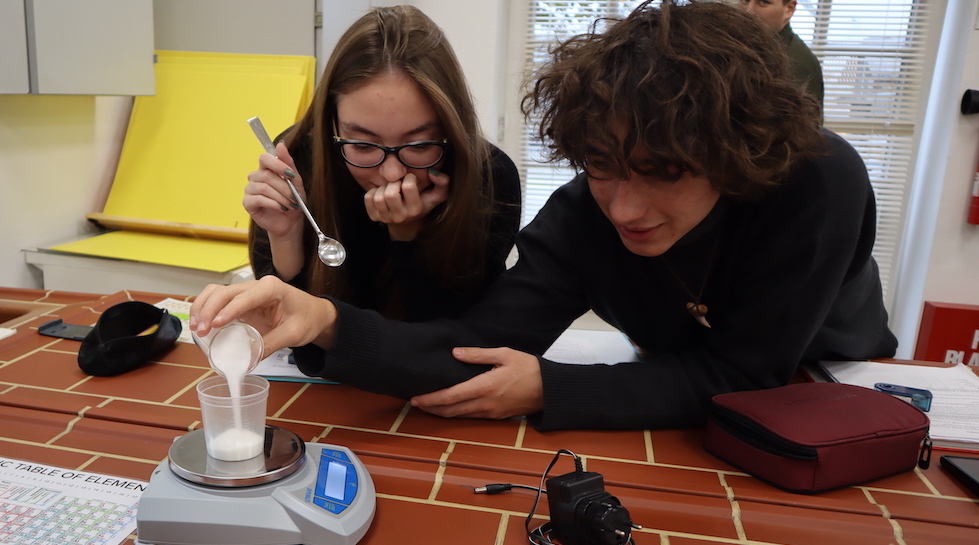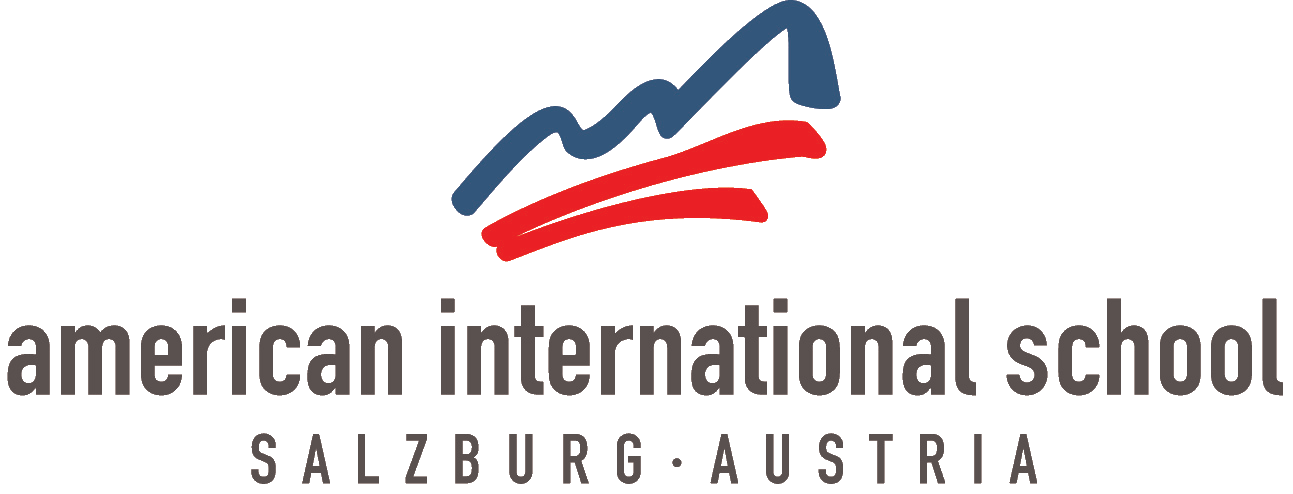
The science department at AIS-Salzburg has a mission to provide all students with the understanding of how the world around them works as well as their impact on their surroundings. Students will be engaged in a wide array of learning environments including lectures, group work, laboratory lessons, and projects. At AIS-S there is an importance placed on developing relationships and collaborative learning and therefore project based learning is a focus of the science department.
The science department at AIS-Salzburg believes that science is one of the most important subject areas with regards to providing students with the skills of critical thinking and real world problem solving and is therefore considered one of the core subject areas. All students at AIS-Salzburg must be enrolled in at least one full-credit science course each year in the seventh and eight grades, and complete a minimum of three academic credits in science in grades nine through twelve.
Students begin with junior high science in grades 7 and 8 and work their way through high school covering the main core sciences (biology, chemistry, physics, environmental science) until they are prepared to take an AP science exam in their senior year. Students will continue to build on their previous classes and knowledge as they move their way through the science department towards graduation.
In Junior High Science students have the opportunity to take a closer look at a variety of topics such as geology, chemistry, astronomy, biology, meteorology, and physics. Individual topics that will be studies have been determined by U.S. junior-high standards and are further explored in the high-school grade levels. Junior high science is a two-year course for all seventh and eighth graders and the curriculum is essentially divided between and equal study of life science, physical science, and earth science. As such, it is termed a science course. This class fully prepares students for later, more specific studies in biology, chemistry, and physics.
This biology course involves the students with the study of life. Coursework will include a study of the broad principles of biology and the understanding that biology is a growing science changing through new developments each year. Particular objectives include the study of the cell, homoeostasis and transport, photosynthesis, cellular reproduction, the fundamentals of genetics, hereditary predictions, evolution and the classification of living things, as well as the study of the various systems of the human organism.
Chemistry is the study of the building blocks of matter. Students in this course will be ex- posed to a broad overview of the principles of chemistry and understand the dynamic nature of chemical research. Particular objectives will include the study of chemical foundations, scientific measurements, the periodic table, definition and use of the mole, an exploration of chemical bonding, stoichiometry, acids and bases, radioactive decay, and will become proficient at chemical equations and calculations, reading graphs and tables and perform laboratory experiments safely and efficiently.
The aim of this course is to familiarize students with the most fundamental concepts and theories of physics. A good proportion of this course is mathematics-based physics providing the contexts and tools to solve problems and predict physical outcomes. Successful completion of this course will ensure a sound understanding of many of the principles governing the physical world.
Advanced Placement Environmental Science is a senior, college-level investigation and analysis of topics relevant to the environment. Students engage with the scientific principles, concepts and methodologies required to understand the interrelationships of the natural world in which we life. Specific topics will include environmental problems, their sources, causes, and potential effects as well as possible solutions available for solving them. As an interdisciplinary course, students will be required to draw upon a prerequisite understanding of biology, chemistry, geography, geology and political science. The AP Environmental Science Examination will be held in early May and students who do well in this course will be well-prepared for success on this examination.
Advanced Placement Chemistry is a challenging chemistry course which represents the equivalent of what first-year university students would be exposed to. As such, a significant amount of time will be devoted to the sound understanding of chemical principles, and in-depth exploration of the states of matter including the Gas Laws, Kinetic Molecular Theory, and liquids, solids, and solutions. Further, students will familiarize themselves with various reactions such as acid-base, oxidation-reduction, equilibrium, kinetics, and thermodynamics. Finally, students will become proficient at chemical equations and calculations, stoichiometry, reading graphs and tables, and performing laboratory experiments safely and efficiently. This course provide full preparation for the AP Chemistry Examination in May. Note: AP Biology and AP Chemistry are offered on an alternating basis annually. Both courses are not available each school year.
This course is designed to be the equivalent of a college-introductory biology course usually taken by biology majors during their first year. The AP Biology course is designed to be taken by students after the successful completion of a first course in high school biology and one in high school chemistry. It aims to provide students with the conceptual framework, factual knowledge, and analytical skills necessary to deal critically with the rapidly changing science of biology. Primary emphasis in an AP Biology course will be on developing an understanding of concepts rather than on memorizing terms and technical details. Essential to this conceptual understanding are the following: a grasp of science as a process rather than as an accumulation of facts; personal experience in scientific inquiry; recognition of unifying themes that integrate the major topics of biology; and application of biological knowledge and critical thinking to environmental and social concerns. This course provides full preparation for the AP Biology Examination in May. Note: AP Biology and AP Chemistry are offered on an alternating basis annually. Both courses are not available each school year.
